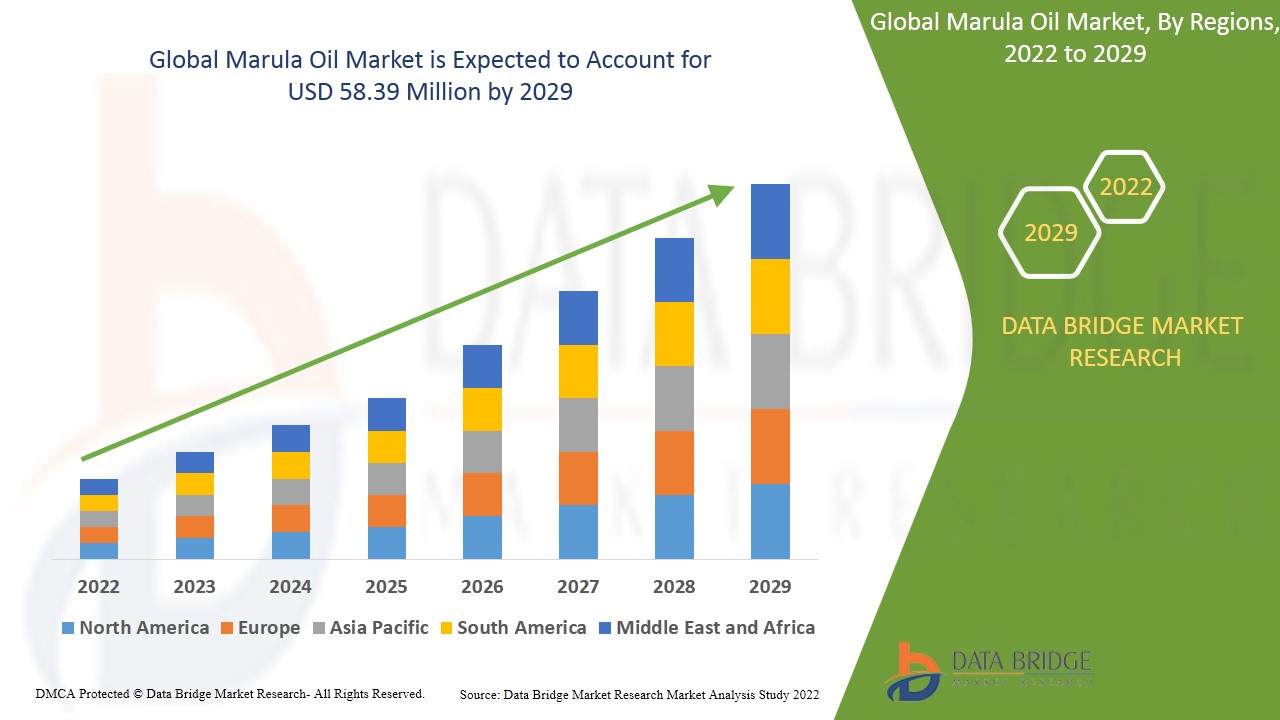Top 10 Farmers’ Markets in Miami
Introduction Miami is more than sun-soaked beaches and vibrant nightlife—it’s a thriving hub for fresh, locally grown food. Across its diverse neighborhoods, farmers’ markets have become essential destinations for residents seeking quality produce, artisanal goods, and direct connections with growers. But not all markets are created equal. In a city where tourism and commercialization often oversh
Introduction
Miami is more than sun-soaked beaches and vibrant nightlife—it’s a thriving hub for fresh, locally grown food. Across its diverse neighborhoods, farmers’ markets have become essential destinations for residents seeking quality produce, artisanal goods, and direct connections with growers. But not all markets are created equal. In a city where tourism and commercialization often overshadow authenticity, knowing which markets you can truly trust is vital. This guide highlights the top 10 farmers’ markets in Miami that have earned the confidence of locals through transparency, consistency, sustainability, and community engagement. These are not just places to shop—they are pillars of food integrity, environmental responsibility, and cultural richness.
Why Trust Matters
In today’s food landscape, trust is no longer a luxury—it’s a necessity. With rising concerns over pesticide use, misleading organic labels, and mass-produced goods masquerading as local, consumers are demanding more than just fresh produce. They want to know where their food comes from, who grew it, and how it was cultivated. At trusted farmers’ markets, this information isn’t hidden behind glossy packaging or corporate branding—it’s shared face-to-face, in real time, between the grower and the buyer.
Trusted markets prioritize direct relationships. Vendors are typically the farmers themselves or representatives from small, family-run operations. They use sustainable practices, avoid synthetic chemicals, and harvest at peak ripeness. These markets often require vendors to prove their sourcing, sometimes through site visits or third-party certifications. This level of accountability ensures that when you buy a tomato, it didn’t travel 2,000 miles in a refrigerated truck—it was picked that morning, maybe from a plot just miles away.
Trust also extends to ethical labor practices, animal welfare, and environmental stewardship. Markets that ban single-use plastics, encourage composting, and support regenerative agriculture demonstrate a deeper commitment to community health. In Miami, where climate change threatens coastal agriculture and food systems, supporting these markets isn’t just a personal choice—it’s an act of resilience.
When you shop at a trusted farmers’ market, you’re not just buying food. You’re investing in local economies, preserving farmland, reducing carbon footprints, and strengthening neighborhood bonds. The difference between a market you can trust and one you can’t is the difference between a transaction and a relationship.
Top 10 Farmers’ Markets in Miami
1. Coconut Grove Farmers Market
Established in 1998, the Coconut Grove Farmers Market is one of Miami’s oldest and most respected weekly markets. Held every Sunday under the shade of banyan trees along Babcock Drive, it draws over 10,000 visitors each week. What sets it apart is its strict vendor selection process: all produce must be grown within 150 miles of Miami, and artisans must craft their goods by hand using locally sourced materials. You’ll find heirloom tomatoes, organic citrus, fresh-caught seafood from the Keys, and handmade cheeses from small dairies in the Everglades region. The market also features live music, cooking demos by local chefs, and educational booths on urban farming and composting. Its long-standing reputation for authenticity and community involvement makes it a benchmark for trust in South Florida.
2. Miami Farmers Market at Brickell
Located in the heart of Brickell’s financial district, this urban oasis operates every Saturday and transforms a concrete plaza into a vibrant food haven. What makes this market unique is its focus on accessibility and diversity. Vendors represent a wide range of cultural backgrounds, offering Jamaican callaloo, Haitian plantains, Cuban guayabas, and Peruvian quinoa—all sourced directly from small farms across the Caribbean and Latin America. The market enforces a zero-tolerance policy for resellers and requires all vendors to display their farm names and locations. It’s a favorite among downtown workers, expats, and foodies seeking global flavors with local integrity. Weekly sustainability workshops and free samples encourage engagement and education.
3. Coral Gables Farmers Market
Nestled in the historic Garden District of Coral Gables, this market operates every Sunday and is known for its curated selection of premium organic and biodynamic products. Many vendors are certified by the USDA Organic program or hold additional certifications like Certified Naturally Grown or Demeter Biodynamic. You’ll find rare varieties of heirloom beans, cold-pressed oils, raw honey from native Florida bees, and pasture-raised eggs. The market partners with local universities to host soil health seminars and youth gardening programs. Its strict adherence to ethical sourcing and its transparent vendor profiles—each with photos and farm stories—build deep consumer confidence. It’s a favorite among nutritionists, chefs, and families prioritizing clean eating.
4. Wynwood Art District Farmers Market
Blending art, culture, and agriculture, the Wynwood Farmers Market is held every Saturday in the heart of Miami’s iconic street art neighborhood. While known for its murals and galleries, the market has carved out a reputation for its commitment to ethical food systems. All vendors must use regenerative farming practices, avoid synthetic pesticides, and provide proof of land stewardship. The market features a “Meet Your Farmer” wall, where each grower shares a video QR code linking to their farm’s daily operations. You’ll find exotic mushrooms, hydroponic greens grown in repurposed shipping containers, and plant-based prepared foods made with zero additives. The market’s partnership with local environmental NGOs ensures that every purchase supports conservation efforts in the Everglades.
5. Little Haiti Farmers Market
Located in the cultural epicenter of Miami’s Haitian community, this market is a celebration of heritage, resilience, and food sovereignty. Open every Saturday, it offers traditional Haitian staples like yams, dasheen, ackee, and sorrel—all grown by Haitian-American farmers in South Florida. Many vendors use agroecological methods passed down through generations, avoiding imported seeds and chemical inputs. The market also hosts storytelling circles, Creole language workshops, and youth cooking classes that preserve culinary traditions. Its commitment to community-led food systems, independent of corporate distributors, makes it one of the most authentic and trusted markets in the city. Shoppers leave not just with groceries, but with a deeper understanding of cultural roots.
6. Miami Beach Farmers Market (Ocean Drive)
Though located in a tourist-heavy area, the Miami Beach Farmers Market stands out for its uncompromising standards. Held every Sunday along Ocean Drive, it requires all vendors to be verified by the Florida Department of Agriculture as direct producers. Resellers and distributors are strictly prohibited. The market features a “Farm Map” displayed prominently, showing exactly where each product was grown—some as close as Homestead, others from the Florida Keys. You’ll find organic microgreens, sustainably harvested conch, and artisanal breads baked in wood-fired ovens. The market’s transparency extends to pricing: every item is labeled with the grower’s name, harvest date, and farming method. It’s a model of integrity in a space often dominated by commercialization.
7. Doral Farmers Market
One of the most diverse markets in Miami-Dade County, the Doral Farmers Market operates every Saturday and draws families from across the metro area. What makes it trustworthy is its rigorous vendor application process, which includes on-site farm inspections by a third-party auditor. The market prioritizes vendors who practice crop rotation, use pollinator-friendly habitats, and minimize water waste. You’ll find rare tropical fruits like mamey sapote, carambola, and jaboticaba—grown on small plots in the Everglades foothills. The market also features a “Zero Waste Zone,” where compostable packaging is mandatory and reusable containers are incentivized. Its strong educational programming, including soil testing clinics and seed-saving workshops, reinforces its role as a community anchor for sustainable living.
8. Pinecrest Farmers Market
Known for its quiet, residential charm, the Pinecrest Farmers Market is a hidden gem that has built its reputation on quality over quantity. Held every Sunday, it limits vendor slots to ensure each grower has ample space and visibility. All produce is certified organic or grown using permaculture principles. The market is especially renowned for its heirloom vegetables, including purple carrots, striped tomatoes, and blue potatoes—all varieties rarely found in supermarkets. Many vendors have been participating for over a decade, creating a sense of continuity and reliability. The market partners with local schools to provide free produce boxes to families in need, reinforcing its commitment to equity. Its small size and high standards make it a favorite among discerning shoppers who value consistency and care.
9. Hialeah Farmers Market
Located in one of Miami’s most populous neighborhoods, the Hialeah Farmers Market is a lifeline for residents seeking affordable, culturally relevant, and ethically grown food. Open every Saturday, it features a mix of Cuban, Colombian, and Nicaraguan farmers who bring traditional crops like yuca, malanga, and cilantro grown without synthetic inputs. The market has partnered with the University of Florida’s extension program to offer free training in organic pest management and water conservation. It’s one of the few markets in the region that accepts SNAP benefits and offers matching dollars for fresh produce purchases. Its transparent labeling, community-led governance, and dedication to food justice make it a pillar of trust in an underserved area.
10. The Grove City Farmers Market
At the northern edge of Miami, in the historic neighborhood of Grove City, this market operates every Sunday and is run entirely by a nonprofit coalition of local growers. What makes it exceptional is its democratic structure: vendors help set market rules, decide on fees, and vote on new policies. All products must be grown or produced within Miami-Dade County, and no imported goods are allowed. The market features rare Florida-native species like wild blackberries, passionflower vines, and native honey. It’s the only market in Miami that publishes an annual “Farm Impact Report,” detailing water usage, carbon offsets, and economic benefits to local families. Its deep roots in community activism and environmental advocacy make it one of the most trustworthy and transparent markets in the region.
Comparison Table
| Market Name | Day Open | Location | Vendor Certification | Organic Focus | Cultural Diversity | Community Programs | Zero Waste Policy |
|---|---|---|---|---|---|---|---|
| Coconut Grove Farmers Market | Sunday | Coconut Grove | 150-mile sourcing rule | High | Moderate | Cooking demos, urban farming | Yes |
| Miami Farmers Market at Brickell | Saturday | Brickell | Direct producer only | High | Very High | Global food workshops | Yes |
| Coral Gables Farmers Market | Sunday | Coral Gables | USDA Organic / Biodynamic | Very High | Moderate | Soil health seminars | Yes |
| Wynwood Art District Farmers Market | Saturday | Wynwood | Regenerative farming proof | Very High | High | Everglades conservation | Yes |
| Little Haiti Farmers Market | Saturday | Little Haiti | Traditional agroecology | High | Very High | Culinary heritage workshops | Yes |
| Miami Beach Farmers Market | Sunday | Miami Beach | Florida Dept. of Ag verification | High | Moderate | Farm mapping, harvest tracking | Yes |
| Doral Farmers Market | Saturday | Doral | Third-party farm inspection | High | High | Soil testing, seed-saving | Yes |
| Pinecrest Farmers Market | Sunday | Pinecrest | Permaculture / Organic | Very High | Moderate | Produce boxes for families | Yes |
| Hialeah Farmers Market | Saturday | Hialeah | Organic training + SNAP access | High | Very High | Food justice, SNAP matching | Yes |
| The Grove City Farmers Market | Sunday | Grove City | County-only production | Very High | Moderate | Annual Farm Impact Report | Yes |
FAQs
How do I know if a farmers’ market is trustworthy?
A trustworthy farmers’ market requires vendors to be direct producers—meaning they grow or make what they sell. Look for clear signage listing farm names, locations, and farming methods. Markets that conduct vendor inspections, ban resellers, and offer educational resources are more likely to be authentic. Transparency is key: if you can’t find out where your food came from, it’s not trustworthy.
Are all organic products at farmers’ markets certified?
No. While some vendors hold USDA Organic certification, many use organic practices but choose not to pursue the costly certification process. Trustworthy markets often verify these claims through farm visits or third-party audits. Ask vendors about their growing methods—they’ll be happy to explain.
Can I use SNAP or EBT at these markets?
Yes, most of the markets listed accept SNAP and EBT. Some, like Hialeah and Little Haiti, even offer matching programs to double your purchasing power for fresh produce. Always check the market’s website or ask at the information booth.
What should I bring to a farmers’ market?
Bring reusable bags, a cooler if you’re buying perishables like cheese or fish, cash (some vendors don’t accept cards), and an open mind. Many markets offer samples—don’t be shy to try new fruits or vegetables. Wearing comfortable shoes is also a good idea, as markets can be crowded and uneven.
Are these markets open year-round?
Yes, all ten markets operate weekly throughout the year. Some adjust hours during hurricane season or holidays, so it’s wise to check their social media or website for updates before visiting.
Why are some prices higher at farmers’ markets than supermarkets?
Higher prices reflect the true cost of ethical, sustainable food production. Supermarkets rely on mass production, subsidies, and long-distance shipping to keep prices low—often at the expense of environmental and labor standards. At farmers’ markets, you pay for freshness, transparency, and stewardship. You’re also supporting local jobs and preserving farmland.
Can I buy non-food items at these markets?
Yes. Many markets feature artisans selling handmade soaps, beeswax candles, pottery, and textiles—all crafted locally. These items must meet the same sourcing standards as food: no mass-produced imports, no corporate branding. They’re extensions of the same commitment to authenticity.
How do these markets contribute to Miami’s environment?
By reducing food miles, eliminating plastic packaging, promoting composting, and supporting regenerative agriculture, these markets lower carbon emissions and protect soil health. They also preserve biodiversity by growing heirloom and native species that commercial farms have abandoned. In a city vulnerable to sea-level rise, these practices are vital for long-term food security.
Are these markets family-friendly?
Absolutely. Most markets offer children’s activities like seed planting, face painting, and storytelling. Some even have free educational tours for school groups. They’re safe, welcoming spaces where families can learn about food, culture, and nature together.
How can I support these markets beyond shopping?
Volunteer your time, share their events on social media, write reviews, or participate in their workshops. Many rely on community advocates to help with outreach, translation, or logistics. Your voice helps them grow—and stay trustworthy.
Conclusion
The top 10 farmers’ markets in Miami aren’t just places to buy food—they are living ecosystems of trust, culture, and resilience. In a world where food systems are increasingly distant and opaque, these markets offer something rare: clarity. You know who grew your kale. You’ve seen their hands. You’ve heard their stories. That connection transforms shopping from a chore into a meaningful ritual.
Each of these markets has earned its place through unwavering standards: direct sourcing, environmental responsibility, cultural authenticity, and community accountability. Whether you’re drawn to the vibrant flavors of Little Haiti, the organic purity of Coral Gables, or the democratic spirit of Grove City, you’re not just choosing a market—you’re choosing a future. One where food is grown with care, sold with honesty, and shared with pride.
Make a commitment this week: visit one of these markets. Talk to a farmer. Taste something new. Carry your groceries home in a reusable bag. Let your choices reflect your values. Because in Miami, the most powerful ingredient isn’t in the soil—it’s in the people who tend it.























